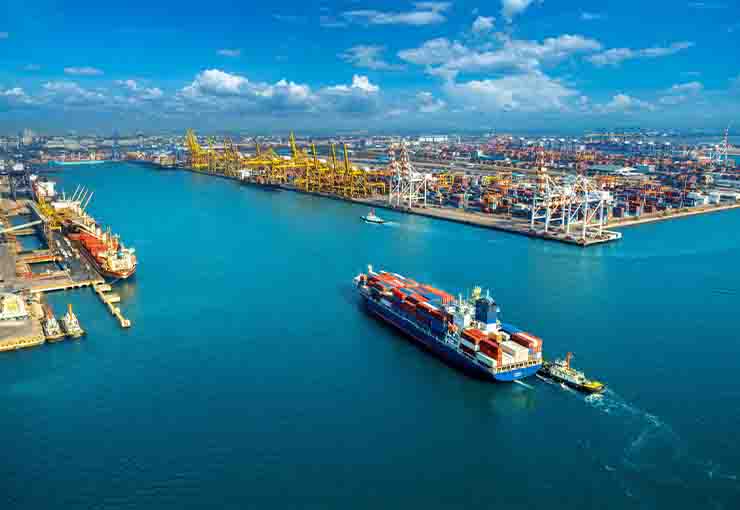
The shipping industry plays an important role in the global economy, ensuring that goods reach their destination safely and on time. However, it faces many challenges that affect efficiency, cost, and safety. From navigating strict regulations to risk management, shipping companies must find ways to overcome these obstacles.
Below are the following challenges commonly encountered in the shipping industry:
1. Shipping Compliance Challenges
One of the biggest demanding situations faced by transport businesses is adhering to ever-changing regulations. International guidelines such as the International Maritime Organization (IMO) standards and country wide rules require businesses to stay updated on prison necessities related to delivery of hazardous materials, group protection, and environmental impact. Failing to conform with these policies can bring about extreme consequences, behind schedule shipments, and reputational damage.
To mitigate compliance challenges:
- Stay informed about regulatory changes in different regions.
- Train employees regularly on the latest shipping regulations.
- Collaborate with compliance experts to ensure all processes align with industry standards.
Ensuring the safety of cargo, especially hazardous materials (hazmat), is a constant concern in the shipping industry. Dangerous goods, like chemicals and flammable substances, require special handling, storage, and transportation. The risk of accidents such as spills, leaks, or fires is always present.
Shipping companies can tackle safety challenges by:
- Implementing strict safety protocols and procedures.
- Providing specialized training for employees handling hazardous cargo.
- Conducting regular safety drills and audits to identify potential risks.
Transporting hazardous materials introduces its own set of problems, from the need for special packaging to the proper labeling of chemicals. Hazmat shipping involves additional paperwork, inspections, and regulations to ensure safe transport. The complexities of shipping hazardous cargo can lead to delays, fines, and even accidents if mishandled.
To address hazmat shipping issues:
- Use certified hazmat carriers that understand the specific needs of dangerous goods.
- Ensure all hazardous materials are properly labeled, packaged, and documented.
- Partner with experienced logistics companies that specialize in hazmat transport.
4. Shipping Risk Management Challenges
Managing risk is an ongoing challenge in the shipping industry. From natural disasters like storms and floods to human errors or mechanical failures, many unforeseen factors can disrupt shipping schedules. Additionally, the increasing threat of cyber-attacks on shipping systems makes risk management even more complex.
To manage shipping risks effectively:
- Implement robust contingency plans for unforeseen disruptions.
- Invest in cybersecurity measures to protect your shipping operations.
- Use real-time tracking technology to monitor shipments and minimize delays.
5. Cost Challenges in the Shipping Industry
The shipping industry faces continuous cost pressures, from rising fuel prices to increasing labor costs. On top of that, the need for compliance with stricter environmental regulations and safety standards can add to operational expenses. Balancing these costs while maintaining efficiency is a major challenge.
To control shipping costs:
- Optimize shipping routes and transportation methods to reduce fuel consumption.
- Invest in fuel-efficient technologies and eco-friendly shipping options.
- Leverage data analytics to track expenses and improve operational efficiency.
6. Shipping Technology Challenges
Technology plays a key role in modern shipping operations, but implementing new systems or upgrading existing ones can be challenging. The shipping industry requires sophisticated technology for tracking shipments, managing inventories, and ensuring communication between stakeholders. However, integrating new technology and training staff can present significant hurdles.
To overcome technology challenges:
- Invest in easy-to-use, scalable shipping software.
- Provide regular training for employees on new technologies.
- Ensure seamless integration of new systems with existing logistics infrastructure.
7. Environmental Sustainability in Shipping
As environmental concerns grow, shipping companies are facing increasing pressure to reduce their carbon footprint. This includes transitioning to greener shipping methods, managing waste, and adhering to sustainability regulations. Meeting these demands without sacrificing operational efficiency is a difficult task for many companies.
To achieve sustainability:
- Transition to more eco-friendly shipping options, such as electric-powered vessels.
- Reduce waste through better packaging and recycling efforts.
- Work with partners who prioritize environmental responsibility.
8. Shipping Infrastructure Challenges
Inadequate infrastructure at ports, lack of warehousing facilities, and delays in loading and unloading cargo can lead to disruptions in shipping schedules. Ports around the world are often congested, which leads to bottlenecks and costly delays for shipping companies.
To improve infrastructure efficiency:
- Work with ports and logistics providers to streamline processes.
- Invest in advanced warehousing and logistics technologies.
- Explore alternative ports or distribution routes when necessary.
Overcoming Shipping Challenges Effectively With Abhijeet Logistics
The shipping industry faces numerous challenges, from compliance and safety to risk management and rising costs. However, by staying informed, investing in technology, and prioritizing safety, shipping companies can navigate these obstacles effectively.
At Abhijeet Logistics, we understand the complexities of the shipping industry and offer expert logistcs solutions to help businesses manage shipping challenges and ensure safe, compliant, and efficient transport of goods. With our dedicated team, advanced technology, and commitment to customer satisfaction, we are here to support you in overcoming these shipping obstacles and delivering your goods safely and on time.



